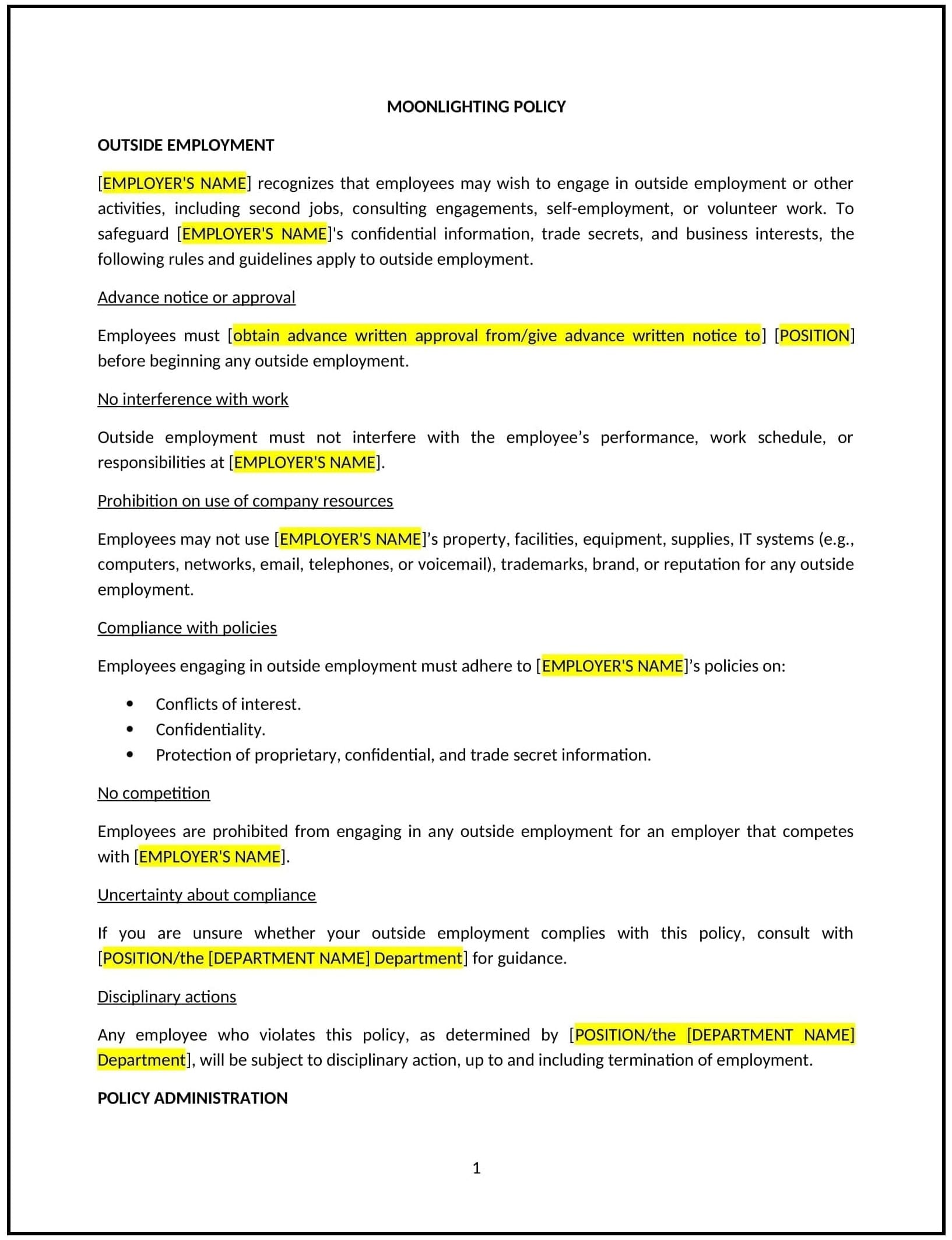Got contracts to review? While you're here for policies, let Cobrief make contract review effortless—start your free review now.

Customize this template for free
Moonlighting policy (Tennessee)
This moonlighting policy is designed to help Tennessee businesses establish guidelines for employees who work additional jobs outside their primary employment. It outlines procedures for ensuring that outside work does not conflict with the employee’s job responsibilities or the business’s interests.
By adopting this policy, businesses can protect their interests, maintain productivity, and ensure employees’ outside work does not create conflicts.
How to use this moonlighting policy (Tennessee)
- Define moonlighting: Clarify what constitutes moonlighting, such as working a second job or freelance work.
- Set approval requirements: Specify whether employees must disclose and obtain approval for outside work.
- Address conflicts of interest: Outline steps for identifying and resolving potential conflicts, such as working for a competitor.
- Train employees: Educate staff on the policy and their responsibilities regarding outside work.
- Review and update: Assess the policy annually to ensure it aligns with evolving business needs and employee expectations.
Benefits of using this moonlighting policy (Tennessee)
This policy offers several advantages for Tennessee businesses:
- Protects business interests: Ensures outside work does not conflict with the employee’s primary job or the business’s operations.
- Maintains productivity: Reduces the risk of fatigue or divided attention affecting job performance.
- Enhances transparency: Provides clear guidelines for employees regarding outside work.
- Reduces risks: Minimizes the potential for conflicts of interest or legal disputes.
- Aligns with best practices: Supports a structured approach to managing moonlighting.
Tips for using this moonlighting policy (Tennessee)
- Communicate the policy: Share the policy with employees and include it in the employee handbook.
- Provide training: Educate staff on the policy and their responsibilities regarding outside work.
- Monitor compliance: Regularly review disclosures and address potential conflicts promptly.
- Address issues promptly: Take corrective action if moonlighting conflicts with job responsibilities or business interests.
- Update regularly: Assess the policy annually to ensure it aligns with evolving business needs.